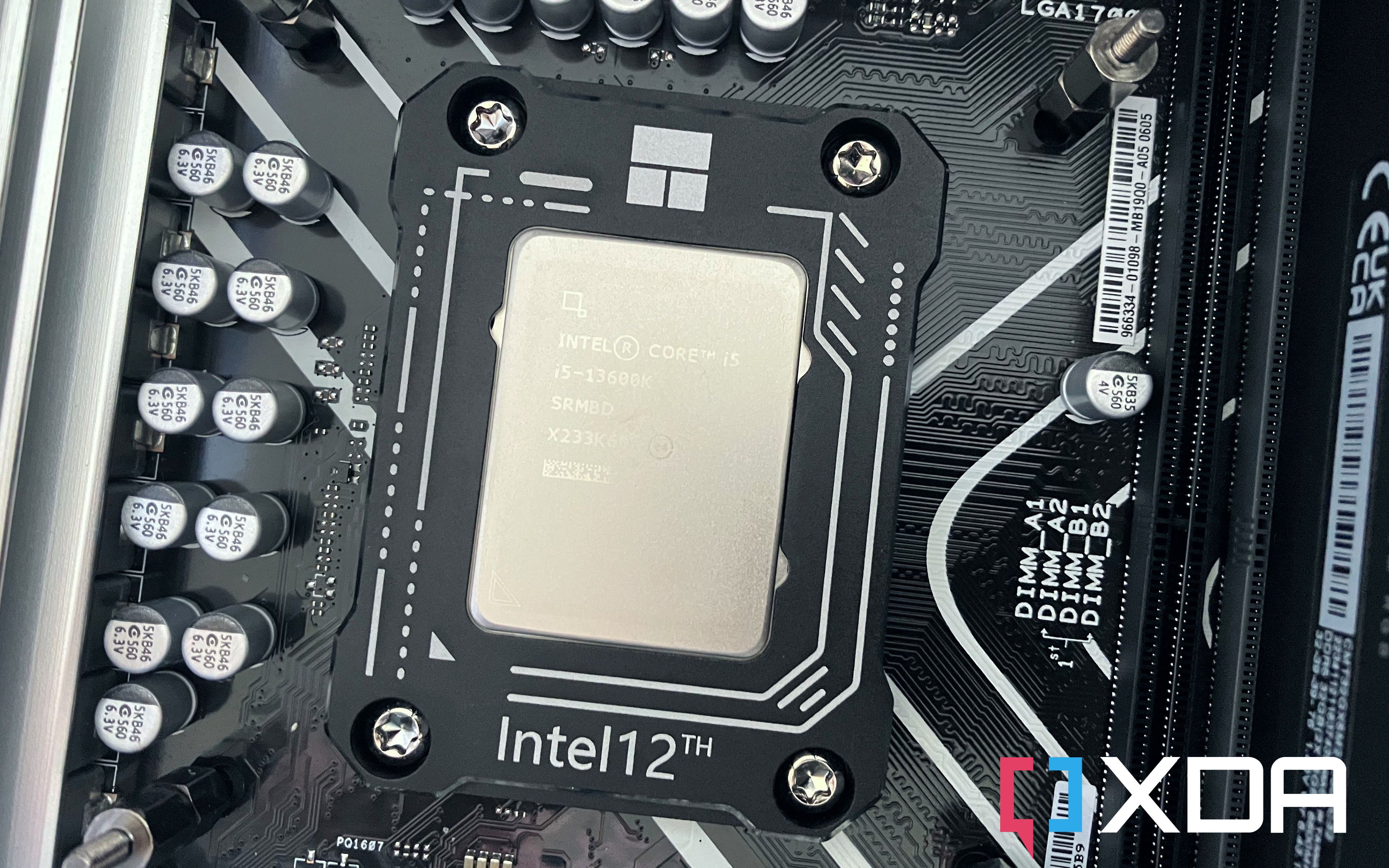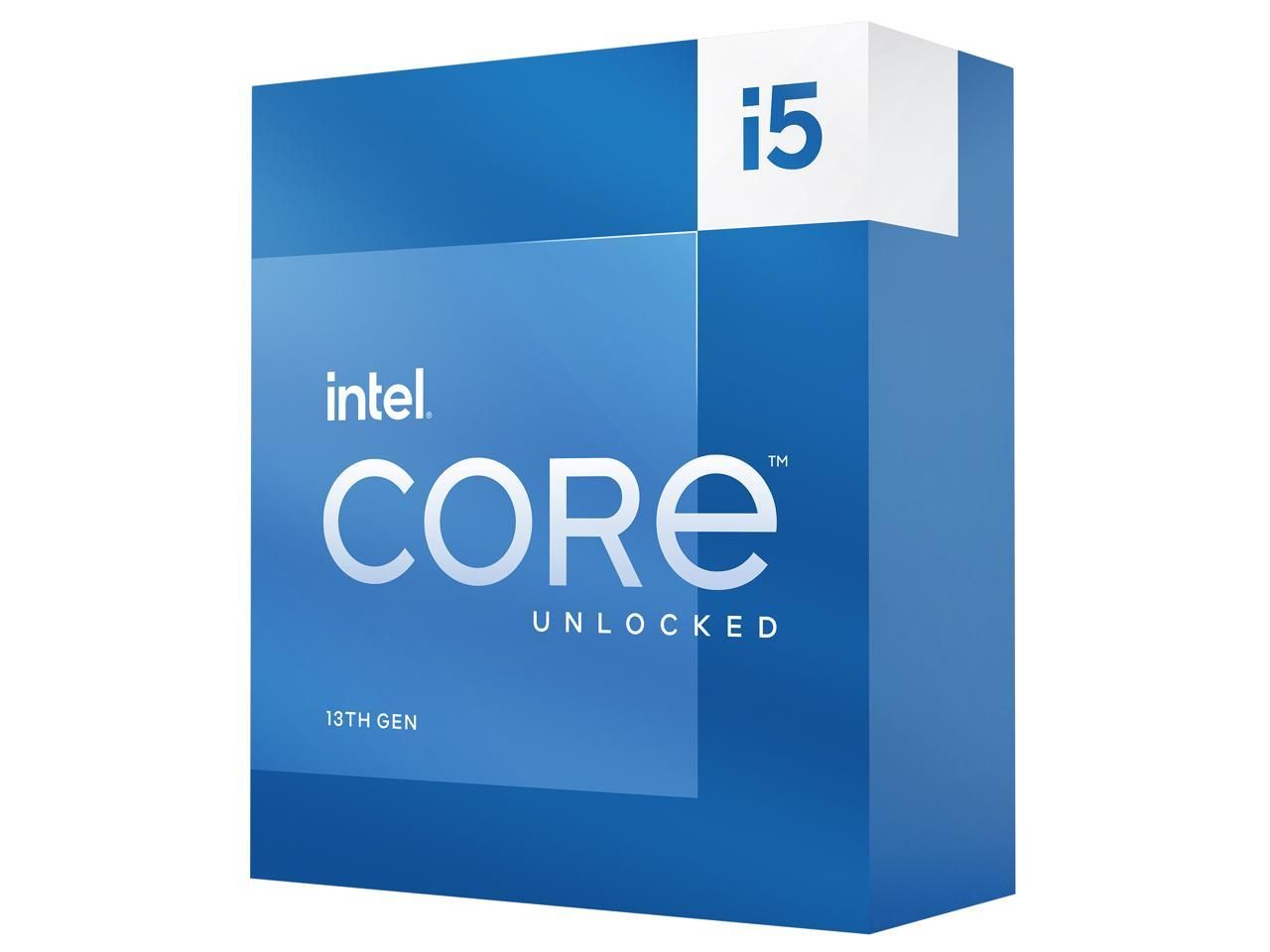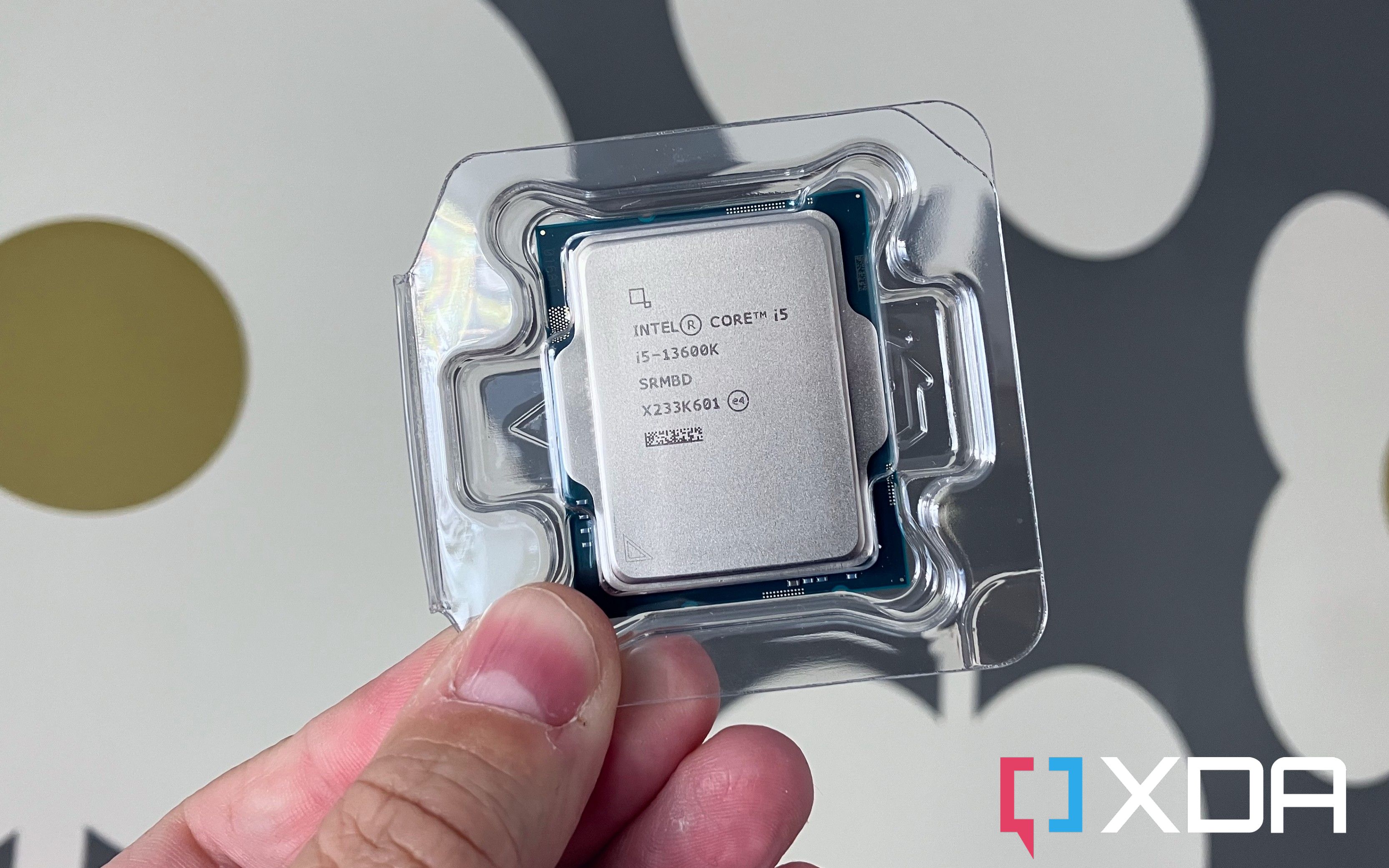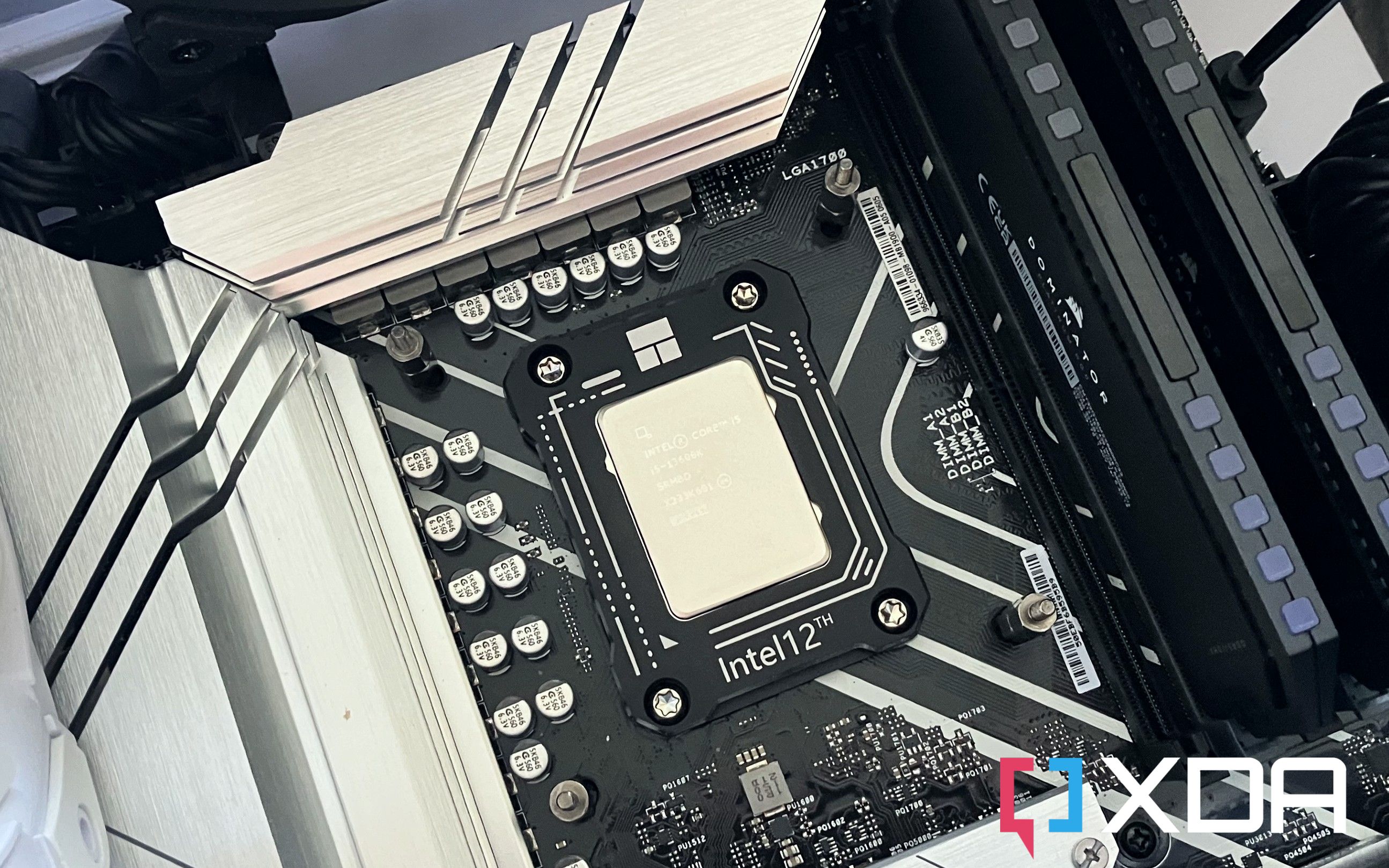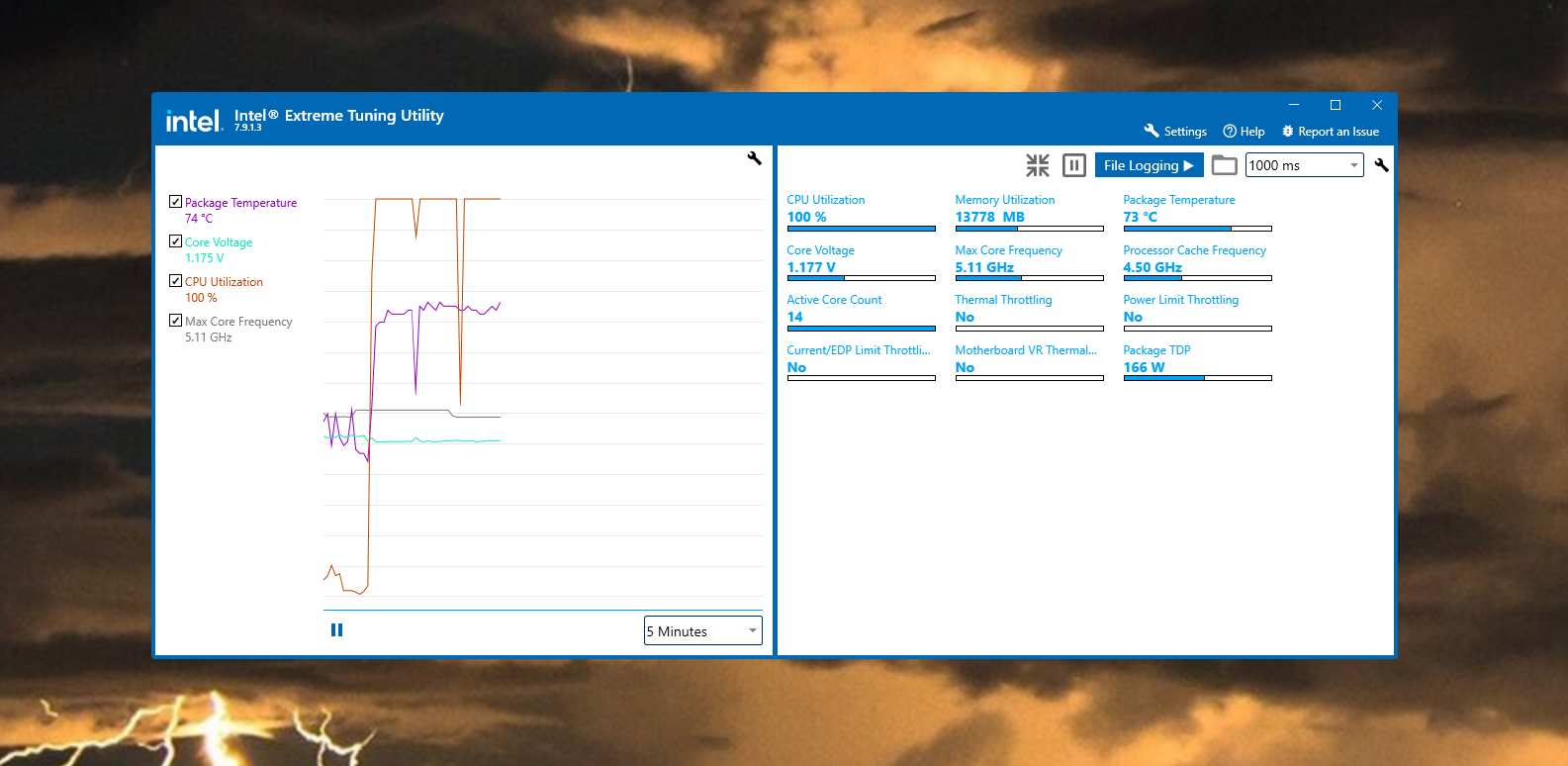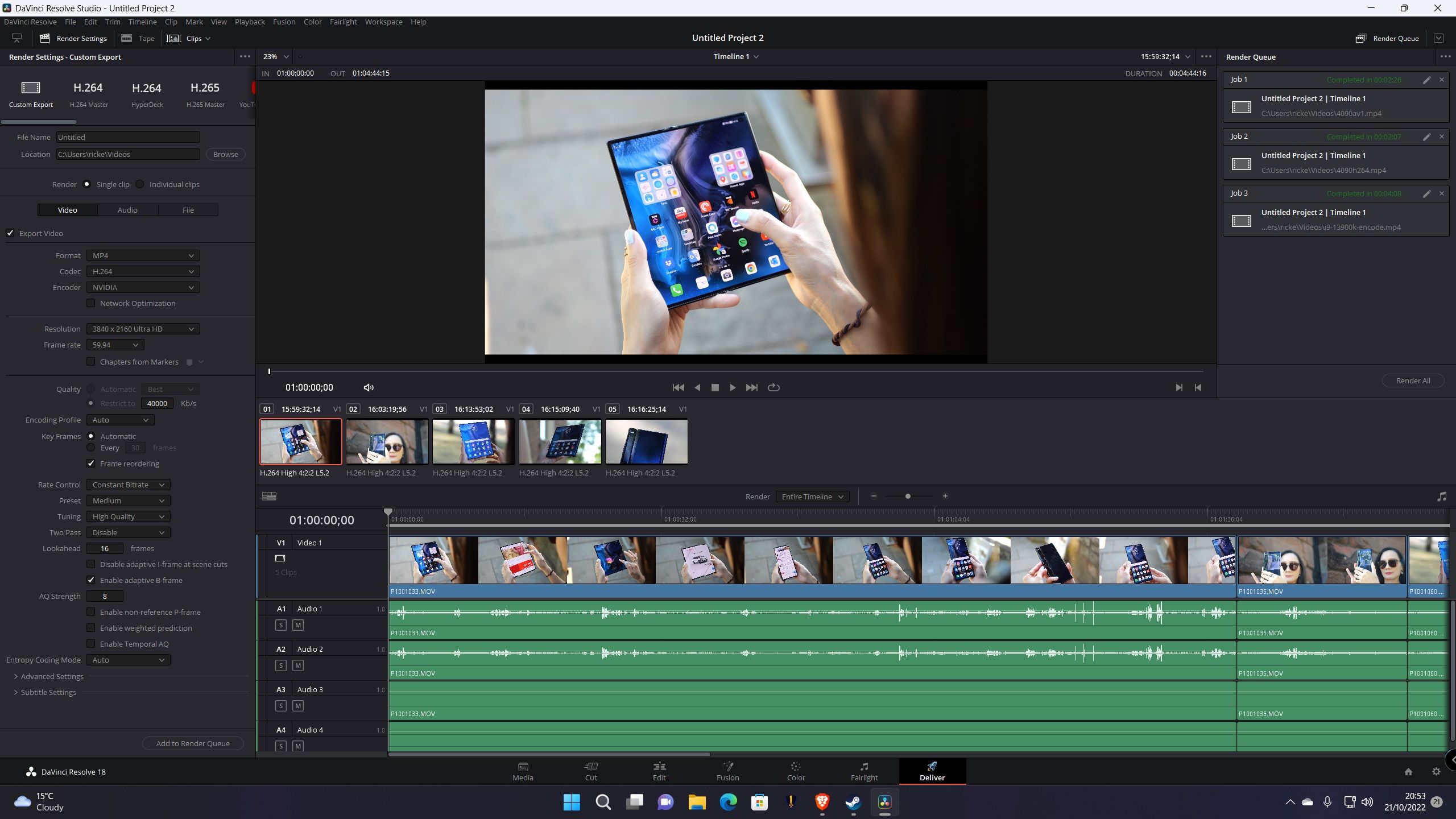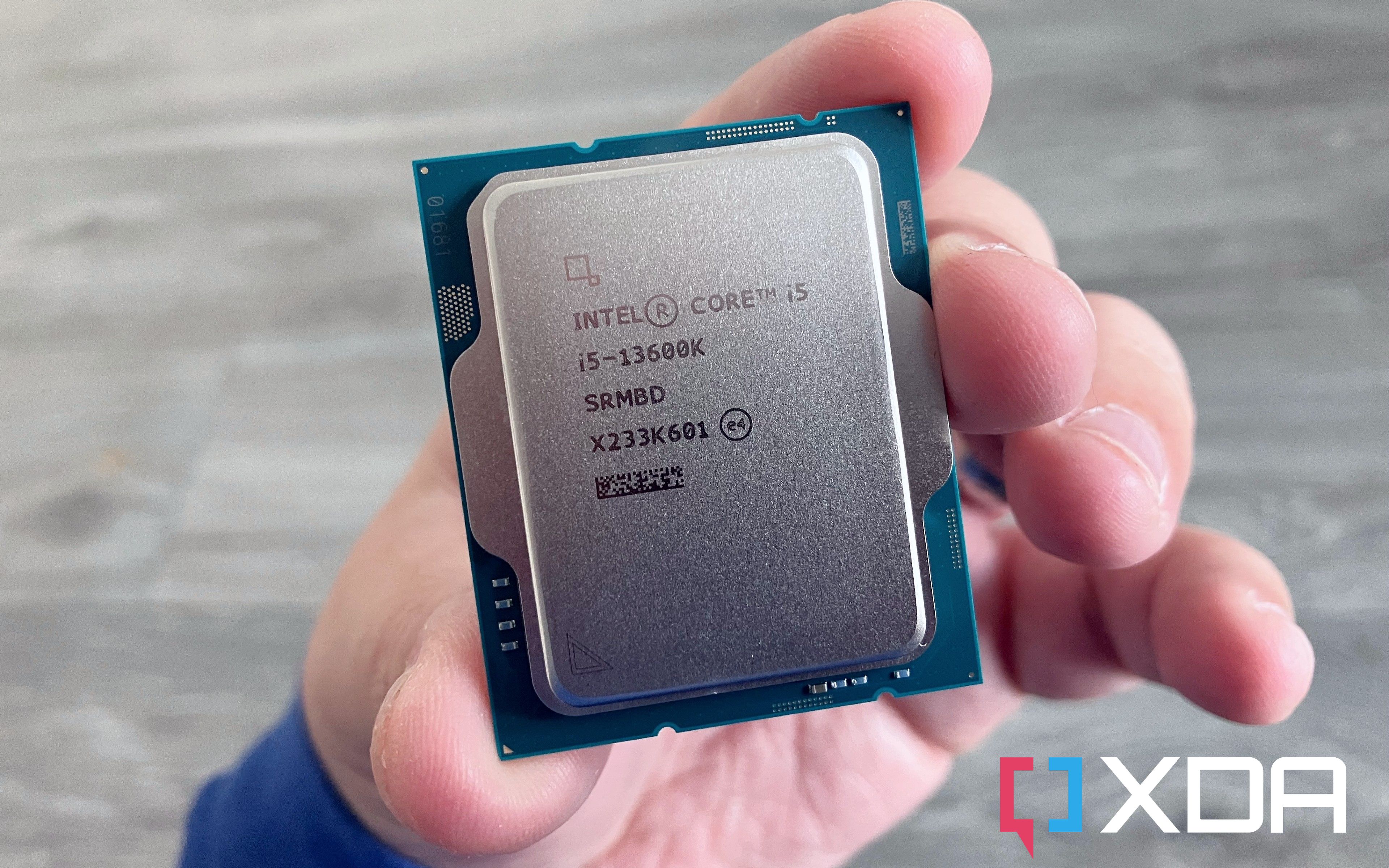There was a time when many gamers, system builders, and enthusiasts would pass by the Intel Core i5. It's not that it was bad, but it was a little uninteresting for many years. That changed with the Core i5-12600K, so we've been waiting (im)patiently for its successor. And that successor is now here, unsurprisingly called the Intel Core i5-13600K.
It's still a mid-tier CPU in Intel's lineup, even if it is unlocked. And it's still based on the same Intel 7 process as the 12th Gen. Surely it can't be that good, can it?
The 12th-generation Core i5 was a massive step up from previous iterations, just like everything else in Intel's lineup. So while it's still based on the same process and the same hybrid design of performance cores (P-cores) and efficiency cores (E-cores), the Core i5-13600K is just more. All 13th-generation chips have twice as many E-cores as the previous generation. All promise higher performance both at lower power draw and at full load. And much like the Core i9-13900K, the Core i5-13600K delivers in spades.
If you are a PC gamer and you're building a new PC right now, this is the best CPU to get. No question.
About this review: This review was conducted using a pre-launch sample of the Intel Core i5-13600K provided by Intel. Nobody at the company had any input into the content of this review.
Intel Core i5-13600K
Intel's latest mid-range CPU is an absolute winner, with much improved performance over its predecessor that makes this now the best CPU to put in a gaming PC.
- 6 P-cores
- 8 E-cores
- 20-threads
- 5.1GHz turbo
- 20MB L2 cache
- 24MB L3 cache
- Speed: 5.1GHz
- Socket: LGA 1700
- Brand: Intel
- TDP: 125W/181W
- Great performance for gaming
- Temperatures stay within comfortable ranges
- Unlocked
- Decent multi-core performance
- No upgrade path to 14th Gen and beyond
- Draws more power than AMD Ryzen
Table of contents:
Intel Core i5-13600K pricing and availability
- This CPU is now available for purchase at $330
- It might not be in stock, but check back in around the holidays for restocks
The Intel Core i5-13600K is available now at a recommended retail price of $330. There is a more affordable SKU, the Core i5-13600KF, which is $30 less on account of having no integrated graphics. But everything else is the same.
As a high-demand item, initial availability will likely be scarce, but restocks will certainly begin as we edge closer to the holiday season. Alongside the Core i5-13600K, the 13th-generation Core i7 and Core i9 unlocked CPUs have also become available.
Intel Core i5-13600K specs
- All 13th-generation CPUs use the same socket (LGA 1700) as the 12th-generation ones
- Compatible with both Z690 and Z790 motherboards
- Has 14 cores total, with six P-cores and eight E-cores, for a total of 20 threads
All 13th-generation CPUs are built on the same Intel 7 process as the previous "Alder Lake," but with impressive performance improvements. These are expected to be the last CPUs built on Intel 7 before the move to Intel 4, and the last to support this current socket, with a different platform likely to arrive alongside the next round of chips.
Future upgrades beyond this platform will require a new motherboard with a new socket and chipset. But there's enough performance in the Core i5-13600K to last inside a top-tier gaming PC for many years to come. As it retains the same platform and the same LGA 1700 socket, your existing 12th-generation-ready coolers can be reused.
Here's how the Core i5-13600K stacks up against the rest of the initial 13th Gen launch lineup.
|
Model |
Cores |
Threads |
Base/Turbo frequency |
L3/L2 Cache |
Base/Turbo power |
|---|---|---|---|---|---|
|
Intel Core i5 (K and KF) |
14 cores 6 P-cores 8 E-cores |
20 |
Max turbo - 5.1GHz P-cores - 3.5GHz/5.1GHz E-cores - 2.6GHz/3.9GHz |
24MB/20MB |
125W/181W |
|
Intel Core i7 (K and KF) |
16 cores 8 P-cores 8 E-cores |
24 |
Max turbo - 5.4GHz P-cores - 3.4GHz/5.3GHz E-cores - 2.5GHz/4.2GHz |
30MB/24MB |
125W/253W |
|
Intel Core i9 (K and KF) |
24 cores 8 P-cores 16 E-Cores |
32 |
Max turbo - 5.8GHz P-cores - 3.0GHz/5.4GHz E-cores - 2.2GHz/4.3GHz |
36MB/32MB |
125W/253W |
As with the previous generation, Intel has again used its hybrid design of P-cores and E-cores. The P-cores have hyperthreading while the E-cores do not, hence the total of 20 threads. New for the 13th generation are double the number of E-cores on every SKU, in this case bringing the total to eight. For gaming, you'll use P-cores the most since they tend to handle foreground tasks.
The Core i5-13600K has double the number of E-cores compared to the Core i5-12600K.
In addition to more cores, turbo clocks have been improved, with an added 200 MHz that takes it to 5.1 GHz. Base clock speed is actually higher than the Core i9-13900K at 3.5GHz on the P-cores. It also has the same 20 PCIe lanes as the rest of the 13th-generation launch lineup and the same 125W base TDP. Its max TDP is quite a bit lower than the others, though, listed at 181W, and as we'll see later, it seems to stick within that boundary, unlike its more power-hungry sibling.
Official support for RAM includes DDR4-3200 and DDR5-5600 at a maximum capacity of 128GB. DDR4 support is probably more important here than on the Core i9 since it makes upgrading to a still capable 13th Gen-based gaming PC a little more affordable. Likewise, both PCIe 4.0 and PCIe 5.0 are supported for when the latter begins to surface.
Test Bench
Here's what we've been using alongside the Intel Core i9-13900K for testing purposes.
- ASUS Prime Z690-P motherboard
- NVIDIA RTX 4090 Founders Edition
- 32GB Corsair Dominator Platinum DDR5-6600
- Phanteks Glacier One 240mm AIO
The GPU is of little relevance to any of the test scores, but we've used the absolute best we have available to ensure the Core i5-13600K isn't hampered in any way.
Intel Core i5-13600K performance
- Great single-core performance
- Strong multi-core performance with additional E-cores
- Temperatures reach 75 degrees Celsius under full load without thermal throttling
The Intel Core i5-13600K has some big boots to fill. And unsurprisingly, it does so with flying colors. The performance is absolutely stunning across the board. There is a definite step-up over the previous generation Core i5, and when it comes to gaming, it's close to the Core i9-13900K.
That's ultimately what excites the most about this CPU. Its gaming performance compared to its price makes it a no-brainer. For heavy, multi-core workloads, you'll still look towards a Core i9 or a Ryzen 7950X, but for gaming, you're where you need to be here. It's an excellent performer with lightly threaded processes, and since it's unlocked, you could conceivably get it closer to its more expensive siblings in this area. But for the most part, you'll be able to throw this thing into your motherboard and let it rip.
Cinebench R23
|
Cinebench R23 |
Intel Core i5-13600K |
Intel Core i9-13900K |
Intel Core i5-12600K |
|---|---|---|---|
|
Single-core |
1,935 |
2,114 |
1,856 |
|
Multi-core |
24,166 |
38,610 |
17,201 |
Geekbench 5.0
|
Geekbench 5.0 |
Intel Core i5-13600K |
Intel Core i9-13900K |
Intel Core i5-12600K |
|---|---|---|---|
|
Single-core |
2,049 |
2,154 |
1,845 |
|
Multi-core |
17,923 |
24,997 |
12,529 |
The Intel Core i5-13600K falls as you would expect when compared with the 13th-generation Core i9 and the 12th-generation Core i5. In these two benchmarks, it significantly outperforms its direct predecessor. Perhaps most remarkable is that it outperforms the Intel Core i9-12900K in Geekbench for both single-core and multi-core while coming only a couple of thousand points behind on the multi-core Cinebench run. This is perhaps the simplest way to show how much of a performance gain overall the 13th generation compares to the 12th.
It's a similar story in 3DMark's Time Spy Extreme and CPU-Z, in that both single-core and multi-core performance are very improved over the Core i5-12600K. Single-core performance isn't that far behind the Core i9-13900K, so with a little tweaking, you could conceivably catch up a little on that front. And once again, it's impressive to see the new Core i5 close enough in performance to last generation's Core i9 that you'd certainly take the 13600K instead.
Let's see some benchmarks.
3DMark Time Spy Extreme (CPU Score)
|
Intel Core i5-13600K |
Intel Core i9-13900K |
Intel Core i5-12600K |
|---|---|---|
|
8,352 |
12,547 |
5,994 |
CPU-Z
|
CPU-Z |
Intel Core i5-13600K |
Intel Core i9-13900K |
Intel Core i5-12600K |
|---|---|---|---|
|
Single-core |
861 |
868 |
738 |
|
Multi-core |
10,342 |
16,866 |
7,116 |
PCMark 10
|
Intel Core i5-13600K |
Intel Core i9-13900K |
Intel Core i5-12600K |
|---|---|---|
|
9,308 |
9,462 |
7,664 |
PCMark tests a bit of everything and isn't a pure CPU test, but nevertheless, the 13900K wins out again. Looking quickly at a gaming benchmark, too, the Core i5-13900K scores an average in Shadow of the Tomb Raider for CPU game and CPU render. Overall average FPS was paired with the RTX 4090, and the test was only 50% GPU bound, so the system had plenty of room to stretch its legs.
Likewise, the CPU admirably runs Forza Horizon 4 at 1440p on Extreme settings. Paired with the RTX 4090, the overall FPS average was only one single frame less than the Core i9-13900K in the same benchmark with the same graphics card. Considering both without having done any manual overclocking, the core i5-13600K is usually close enough to the overall FPS averages of the Core i9-13900K to cement its position as the one to get for gaming.
Thermals and power
Where the Core i9-13900K will blast past 300W package TDP and run to 100 degrees Celsius, the Core i5-13600K is much more restrained. Under full load, it hasn't exceeded 75 degrees Celsius or exceeded 171W. So there's a little headroom even on what Intel rates as the maximum TDP if you want to do some overclocking.
There is a caveat here, at least for this review, just as there was with the Core i9-13900K. The motherboard I've used seems to be more restrictive than others out of the box, so to stretch the CPU, I had to intervene manually. None of the results above were a result of overclocking the chip, but I did have to make a few tweaks to allow it to run as close to unrestricted as possible.
Ultimately, with any decent cooler, you'll be able to run the Core i5-13600K pretty hard without fear of it getting too hot or throttling. For a gaming PC, that means you're getting peak performance all the time.
Encoding, Deep Link and Thread Director
Another aspect of performance worth touching on is encoding. It's perhaps a little less relevant than it once was, with the sheer might of GPU encoding and the new generation of hardware AV1 encoders. But it's still relevant, and to some, it's an integral part of their workflow. The Cinebench render test already shows off the Core i5-13600K, but when you get into real-world scenarios, it's surprisingly capable.
Take DaVinci Resolve as an example. Recently I've been using it to test the encoding performance of Intel's Arc GPUs and the Nvidia RTX 4090. Encoding the same video — 4K, 60FPS, 40,000 bitrate, 4:30 length — scored the Core i5 right in between the RTX 4090 and the Intel Arc A770 16GB, and not too far behind the Core i9-13900K. The downside is that the Core i5-13600K can't render in AV1, so you would still need a dedicated encoder for that.
DaVinci Resolve encoding
|
Intel Core i5-13600K |
Intel Core i9-13900K |
Nvidia RTX 4090 |
Intel Arc A770 16GB |
|---|---|---|---|
|
4 minutes, 44 seconds |
4 minutes, 8 seconds |
2 minutes, 7 seconds |
6 minutes, 50 seconds |
Intel also has some nifty features going on with the 13th-generation CPUs that you can't necessarily see, but that will make your life easier in the background. Thread Director is one of them, working in conjunction with the Windows Scheduler. Essentially, the CPU will classify the threads and help the system optimize which ones to use for tasks. Windows 11 22H2 makes some additional tweaks to how it helps handle background tasks.
Deep Link is something that, at least for now, few will actually use, but could become a bigger deal as the Arc GPU family grows. It hooks the integrated graphics on the CPU with the dedicated graphics of an Arc GPU, so they can both work in harmony. This unlocks features like Hyper Encode, where, in theory, you get an additional boost by using both GPUs in tandem. However, whether it can beat the CPU on its own is something we'll be looking at in the future. It also wouldn't work on the KF versions of the 13-generation CPUs as they have no iGPU. To enable the feature, you only have to ensure the integrated graphics are enabled on your system in the BIOS.
Should you buy the Intel Core i5-13600K?
The conclusion to the Core i9-13900K review was that it's worth buying, but it also probably isn't for most people. The conclusion here is much different. The Core i5-13600K is the best CPU to buy if you're building a gaming PC right now. It's about half the price of the Core i9 and for gaming, almost as good right out of the box.
You should buy if:
- You want to put the best CPU in your gaming PC
- You're an enthusiast who wants a more affordable chip to overclock
- You want a great performance-per-dollar ratio
You shouldn't buy if:
- You need the most cores and threads possible for heavy workloads
- You're not comfortable that there's no upgrade path beyond 13th Gen
The Intel Core i5-13600K's performance is glorious. On paper, it doesn't look like a big jump from the previous generation, but in practice, it really is. The cores you get perform better, and you get more of them. The price is also pretty aggressive at just $330. It's about half the price of the Core i9-13900K, and when it comes to gaming, it's close enough in performance that saving hundreds of dollars makes total sense. The performance-per-dollar ratio here is absolutely incredible, and the only real downside is that you're stuck on this platform. But when the Core i5-13600K is this good, you won't need to upgrade for a while.
And truthfully, I'm not surprised, the 12th-generation Core i5 was the best gaming CPU, and the 13th-generation retains that crown.

